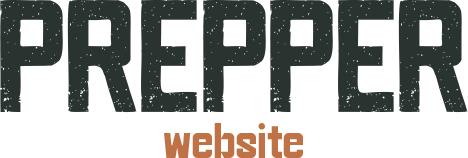10 Books Every Prepper Should Have on Their Shelf
Being prepared isn’t just about stocking up on supplies—it’s about arming yourself with the knowledge to survive when the unexpected happens. Books, in this regard, become an invaluable resource. They offer a wealth of knowledge right at your fingertips, from field guides and manuals to fictional stories that get you thinking about survival in new ways. If you’re a prepper, or even if you’re just considering the lifestyle, these ten books are must-haves for your survival library.
1. “SAS Survival Handbook” by John ‘Lofty’ Wiseman
When it comes to survival manuals, The “SAS Survival Handbook” is regarded by many as the gold standard. Written by a former member of the British Special Air Service, it covers everything from basics such as building fires and finding water to complex scenarios like handling health emergencies in the wild.
2. “The Prepper’s Water Survival Guide” by Daisy Luther
No survival library is complete without a book dedicated to water. “The Prepper’s Water Survival Guide” focuses on the critical aspect of water procurement and treatment during crisis situations. It offers strategies to find, collect, purify, and store water, making it a crucial resource in any emergency.
3. “The SAS Urban Survival Handbook” by John ‘Lofty’ Wiseman
Another gem from Wiseman, “The SAS Urban Survival Handbook” pertains specifically to urban settings, dealing with threats such as home invasions, natural disasters and terrorist attacks.
4. “The Survival Medicine Handbook” by Joseph Alton and Amy Alton
Medical treatment is often overlooked in prepping. “The Survival Medicine Handbook” is a valuable resource for those who want to learn about dealing with medical situations in a disaster, especially when no doctor is available.
5. “Patriots: A Novel of Survival in the Coming Collapse” by James Wesley Rawles
This book blends entertainment with practical advice, using a fictional story to explore real-world survival tactics. “Patriots” takes readers into a post-economic collapse America and the challenges people face in such situations.
6. “One Second After” by William R. Forstchen
A sobering look at life after an electromagnetic pulse destroys technology in America, “One Second After” is a thrilling novel based on the very real possibility of a widespread EMP event.
7. “Edible Wild Plants” by Thomas Elias and Peter Dykeman
Knowing how to find food in the wild could save your life. “Edible Wild Plants” is a field guide to the edible plants in North American wilderness and how to recognize them.
8. “How to Survive the End of the World as We Know It” by James Wesley Rawles
This comprehensive guide offers Rawles’ expert take on modern survival planning, including food storage, survival skills, and preparing for different disaster scenarios.
9. “Lights Out” by Ted Koppel
In “Lights Out”, esteemed journalist Ted Koppel explores the potential aftermath of a cyberattack on America’s power grid, making it a read that’s as thought-provoking as it is chilling.
10. “The Prepper’s Cookbook” by Tess Pennington
This book is all about practicality, offering over 300 recipes designed to be made with simple, shelf-stable foods that preppers might have on hand during a crisis.
In conclusion, these books offer a mix of factual resources and thought-provoking narratives, with the aim to prepare you as much as possible for unpredictable eventualities. To be a prepper, you have to anticipate and be ready for the unforeseen, and these books will surely equip you with the necessary knowledge to do just that.
Frequently Asked Questions
Q: Why is reading important for preppers?
A: Reading exposes you to different scenarios you might not have thought of and provides solutions to problems you might encounter.
Q: Can I use eBooks or Audiobooks instead of traditional books?
A: Yes, eBooks and Audiobooks can be a good option, but remember they usually require power. Physical books can be used anytime, anywhere.
Q: Does the order in which these books are read matter?
A: No, the order doesn’t matter. Each book provides unique information. Choose the one most suitable to your immediate needs first, then proceed with the others.







